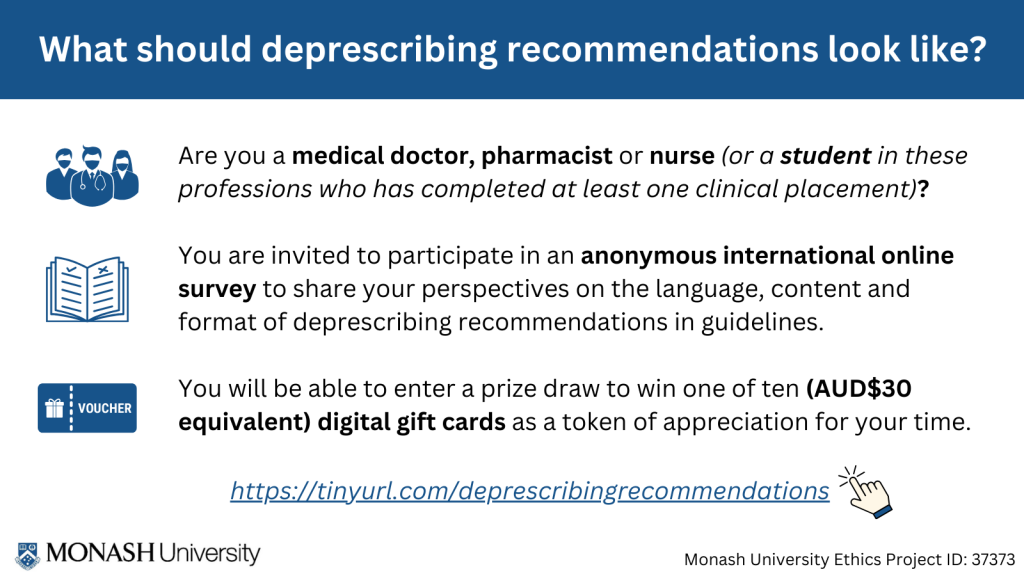Internationally, there has been an increase in the prevalence of potentially inappropriate medicines (PIMs) where the risks may outweigh the benefits.
This rise is partly due to healthcare professionals’ adherence to clinical practice guidelines, which typically recommend prescribing medications for treating and managing diseases. Deprescribing involves systematically reducing or discontinuing PIMs under the supervision of healthcare professionals. However, barriers such as limited knowledge and perceived self-efficacy among clinicians have been identified as key barriers to deprescribing.
Previous research identified that integrating prescribing and deprescribing recommendations into treatment guidelines may enhance the adoption of deprescribing practices and promote the reduction of PIMs. A recent scoping review found that fewer than one-third of guidelines included any deprescribing recommendations, with substantial variability in format and terminology. Among guidelines that did, only 58% provided detailed guidance on how to deprescribe. This lack of clear and actionable recommendations may hinder effective implementation in clinical practice, highlighting the need for guidance in developing a standardised template for deprescribing recommendations.
To address this, a new study is aiming to explore the perspectives, needs and preferences of healthcare professionals regarding the language, content and format of deprescribing recommendations for inclusion in guidelines.

The study results will providing valuable insights into how to best present deprescribing recommendations to healthcare professionals, who are the end-users of clinical practice guidelines. For example, the study will highlight preferences for specific terminology (e.g. the use of words like discontinue, taper, or deprescribe when discussing medication cessation), essential information to include (e.g. target population, availability of alternative non-pharmacological treatments), and need for supporting resources (e.g. patient decision aids to guide the process and improve patient understanding).
Researchers believe the development and implementation of deprescribing recommendations may help improve healthcare delivery and patient outcomes.
Researchers want to hear from currently or previously registered medical doctors, pharmacists and nurses (including students in these professions who have completed at least one clinical placement).
They are invited to participate in an anonymous online survey, which will take about 15 to 20 minutes to complete.
Taking part will gain you entry to win one of ten (AUD$30 equivalent) digital gift cards.
To begin the survey, please click here
For further information, please contact shin.liau@monash.edu









One Response
I work in isolated indiginous health ; medical advice via phone or video ( physical presence 2 days a week)
I use medication usage & cessation via PHCC or KHAMS guidelines .
There is increase of risk to patients in prescribing in some circumstances, evidence guidelines mitigate